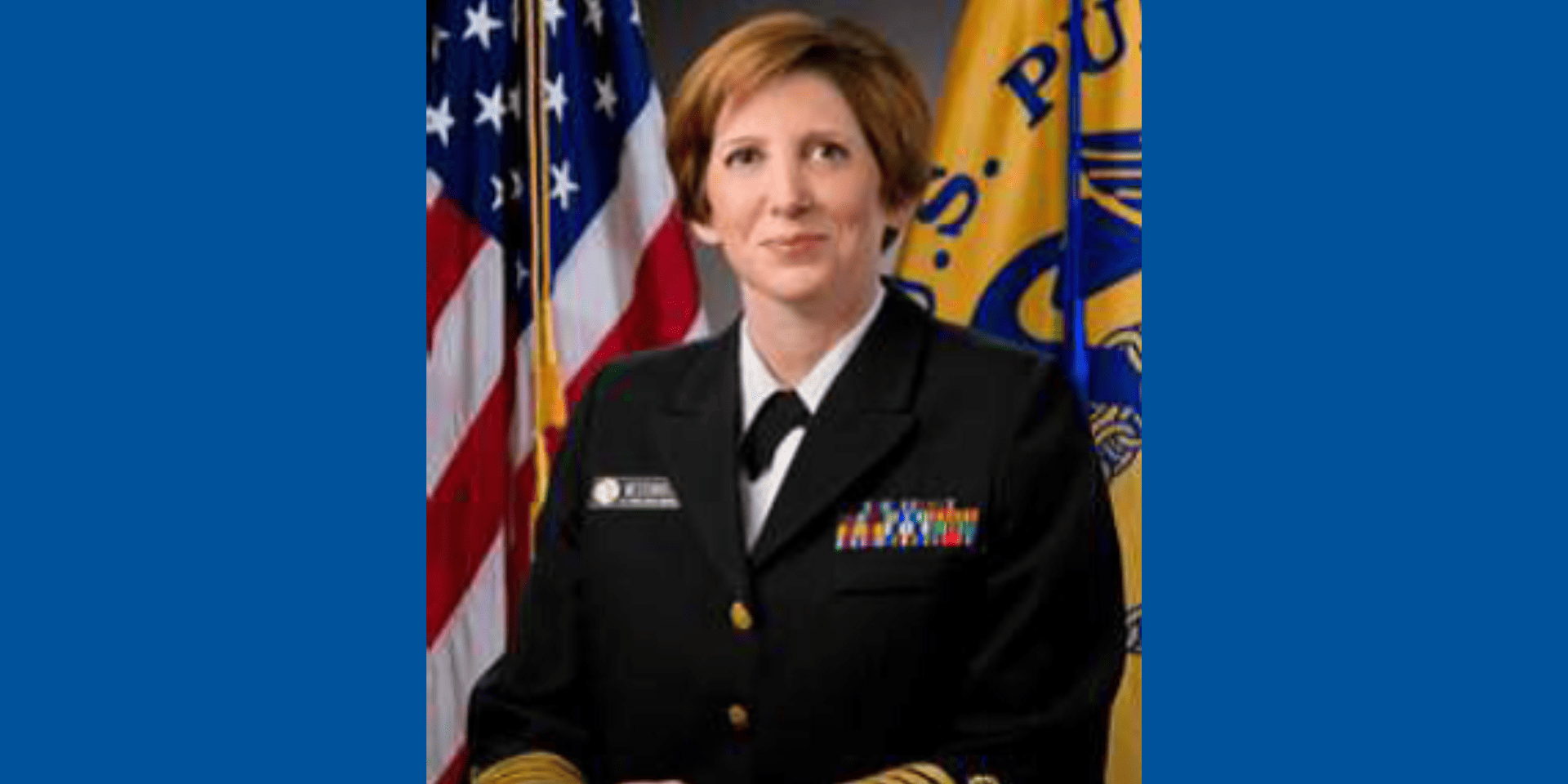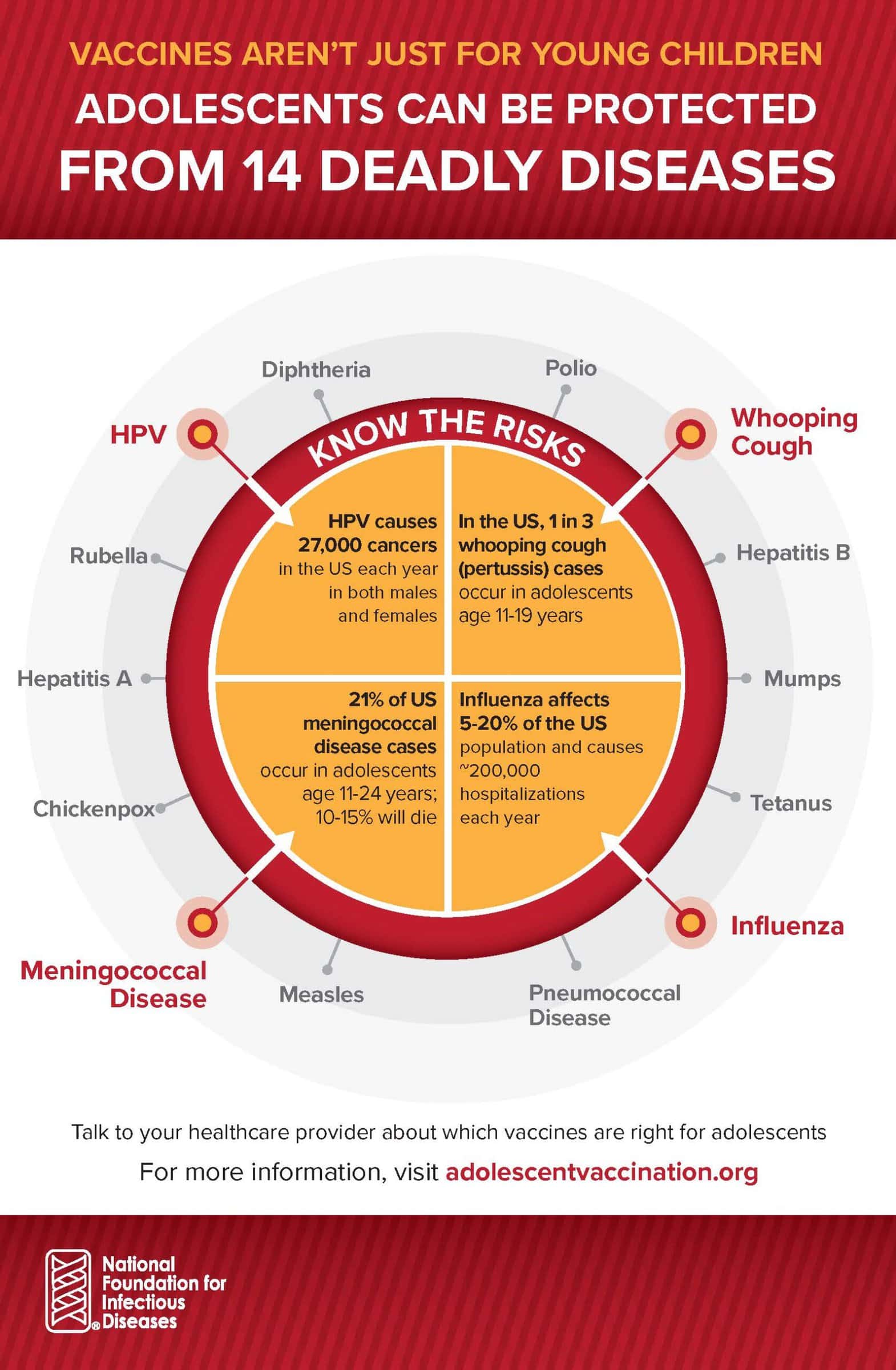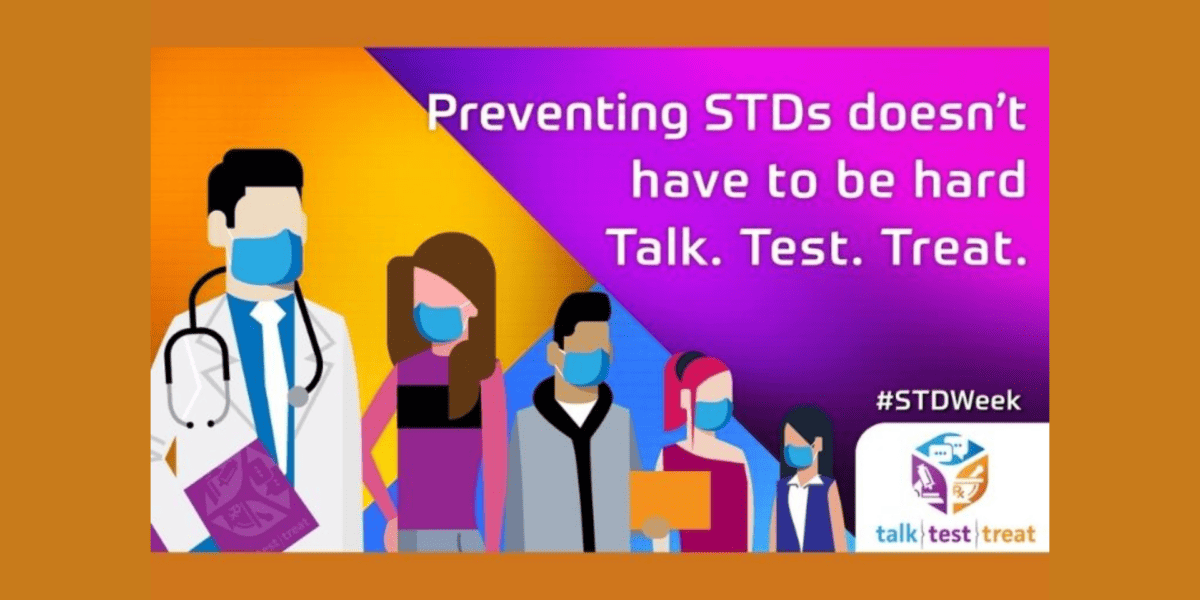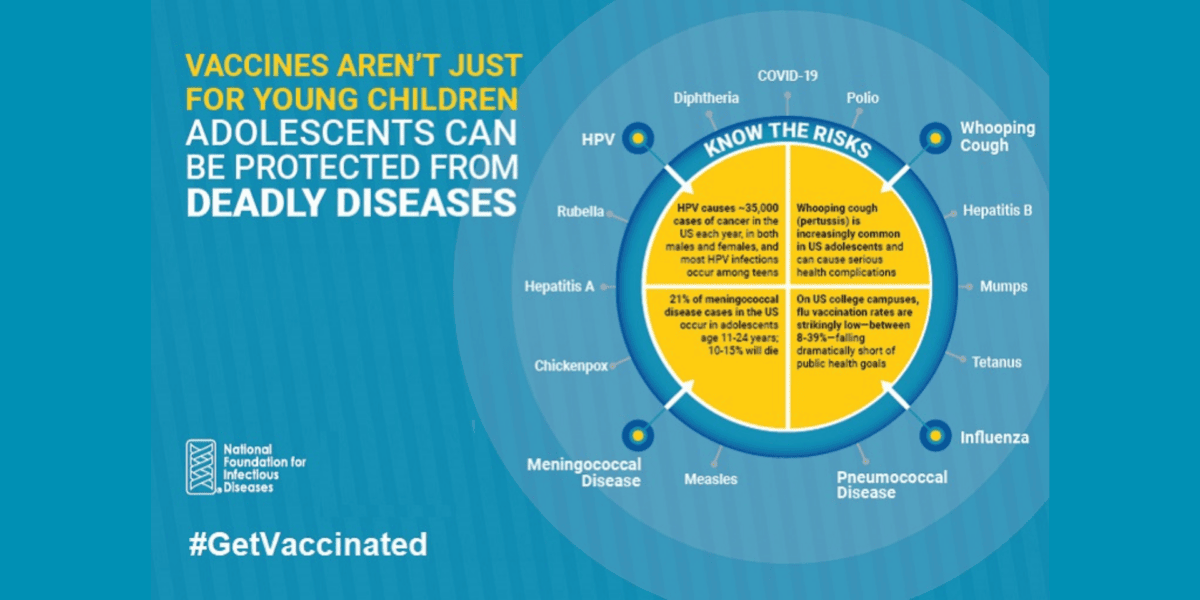
To highlight the importance of immunizations across the lifespan, NFID is launching an inaugural National Immunization Awareness Month (NIAM) blog relay, featuring a guest post each week from an immunization champion and/or organization. Each week of #NIAM16 focuses on a different stage of the lifespan.
Read all of the #NIAM16 blog relay posts:
- The Perfect Time for On-Time Vaccination (7/25/16)
- Making the Case for Adult Vaccines (8/1/16)
- Immunization is Crucial for Pregnant Women and Their Babies (8/8/16)
- A Healthy Start Begins with On-Time Vaccination (8/15/16)
- Protect Your Preteens Today from HPV-Related Cancers Tomorrow (8/22/16)
- Meningococcal Disease: Are College Students Protected (8/25/16)
- Why On-Time Vaccination Is So Important (8/29/16)
Special thanks to Nancy Messonnier, MD, MPH, Director, National Center for Immunization and Respiratory Diseases, Centers for Disease Control and Prevention (CDC) for sharing her perspective on the importance of on-time vaccination, to kick-off the 2016 NIAM blog relay.
August is National Immunization Awareness Month (NIAM), and for much of the country, August also means the start of the school year. I find this time of year particularly rewarding because it represents a fusion of my two passions: my family and public health. As a mother, I’m thinking about all the things I can do to keep my family safe and healthy for the upcoming school year. As a physician and director of the CDC National Center for Immunization and Respiratory Diseases, I’m thinking about everything we can do to keep our country’s children safe and healthy for the upcoming school year.
As parents begin thinking about all the things they need to do before the school year, now is the perfect time remind them that on-time vaccination is the best way to protect their children against 16 serious and potentially deadly diseases.
Parents agree that car seats, handwashing, and bike helmets are important to help keep their children healthy. The same goes for immunizations.
CDC immunization schedules are designed to protect children and teens at times in their lives when they are vulnerable, and before it’s likely that they will be exposed to diseases. Vaccine-preventable diseases like measles can be especially serious for infants and very young children. As they get older, children need boosters against diseases like whooping cough because the protection from vaccines received during childhood can wear off with time. Preteens and teens are at increased risk for other diseases, like meningococcal disease, which can cause meningitis and bloodstream infections.
Public health and medical experts base their vaccine recommendations on many factors. They study diseases and vaccines very carefully to decide which vaccines children should get and when they should get them for optimal protection. For example, HPV vaccination is recommended for preteen boys and girls at age 11 or 12 years so they have time to develop protection long before ever being exposed to the cancer-causing virus.
 Although the number of vaccines a child needs may seem like a lot, research shows that a healthy child’s immune system can handle getting all vaccines when they are recommended. There is no known benefit to delaying vaccination. In fact, it leaves children vulnerable to serious diseases like measles and whooping cough.
Although the number of vaccines a child needs may seem like a lot, research shows that a healthy child’s immune system can handle getting all vaccines when they are recommended. There is no known benefit to delaying vaccination. In fact, it leaves children vulnerable to serious diseases like measles and whooping cough.
Since 2010, we have seen between 10,000 and 50,000 cases of whooping cough each year in the US. The US also experienced a record number of measles cases in 2014, with 667 cases reported to CDC—the highest number of cases in the US since the disease was eliminated in 2000. And over 30,000 men and women in the US are infected with cancers caused by HPV infections every year.
Many vaccine-preventable diseases can easily spread in child care, school, and dormitory settings. Sticking to the recommended schedule also protects others who can’t be immunized like infants in child care centers who are too young to get certain vaccines.
If a child falls behind the recommended schedule, parents and healthcare professionals should use the catch-up immunization schedule to quickly get the child up-to-date, reducing the amount of time the child is left vulnerable to dangerous diseases.
Whether you’re a physician seeing patients for back-to-school appointments or a parent getting your children ready for the school year, now is the time to make sure children are up-to-date on all their vaccines.
For more information about the importance of on-time vaccination, visit CDC and NFID.
Be sure to check NFID News each week during #NIAM16 to view guest blog posts, including next week’s guest post by the Adult Vaccine Access Coalition.
To join the conversation, follow NFID (@nfidvaccines) and Nancy Messonnier (@DrNancyM_CDC) on Twitter using the hashtag #NIAM16, like NFID on Facebook, join the NFID Linkedin Group, and subscribe to NFID Updates.
Related Posts

Protecting Children as They Head Back to School
As school gets underway, experts from the National Foundation for Infectious Diseases (NFID) offer insights on childhood immunization

Lifelong Conversations about Sexual Health
Teen Health Week is April 4-10, 2022, and STD Awareness Week is April 10-16, 2022, both of which provide an opportunity for healthcare professionals to begin lifelong conversations with patients about sexual health and the importance of staying up to date on all recommended vaccines …

Vaccines Are Not Just for Young Children
CDC recommends vaccinations from birth to adulthood to provide a lifetime of protection. Yet many adolescents are not vaccinated as recommended, leaving them unnecessarily vulnerable. International Adolescent Health Week (March 20-26, 2022) is a perfect time to make sure that pre-teens and teens are up to date on all recommended vaccines …
